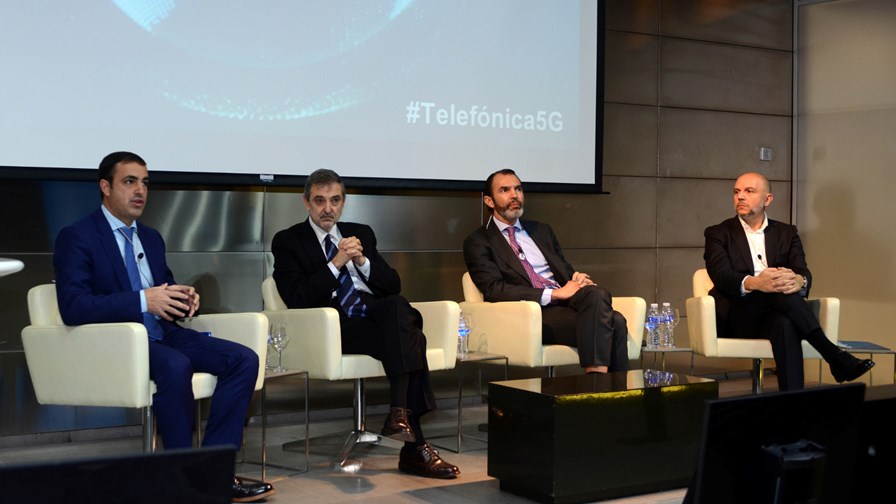
© Telefonica
- Segovia and Talavera de la Reina will be the first two 5G cities
- Telefónica working with Nokia and Ericsson
- Also working with SEAT and FICOSA on connected car applications
- 5G network will be deployed initially in non-standalone mode
Telefónica has presented its 5G Technological Cities project, with detail of its initial deployment of 5G in the Spanish cities of Segovia and Talavera de la Reina. Working with its vendors partners, Nokia and Ericsson, Telefónica says it will transform the two cities into “5G living laboratories” over the next three years. This will include a 3GPP-standardised 5G network and the development of use cases.
The telco says that network speed will be increased to up to 10Gbit/s with latency of between 1 and 5 milliseconds, as well as providing capacity for up to 100 times more connected devices. In other words, pretty much what the 5G and IMT-2020 specifications call for.
“With the 5G Technological Cities project, Telefónica is turning the technology of the future into reality and providing a constant service for people,” said Luis Miguel Gilpérez, CEO of Telefónica España. “This is why we will perform the technological deployment and use cases in parallel, so that we will serve people with the new technologies, one of Telefónica’s clear objectives”.
Telefónica will work with Nokia in Segovia and with Ericsson in Talavera de la Reina. Network improvements will start with LTE, enabling residents and businesses to gain early benefit ahead of 5G-capble device launches. The 5G network will initially be non-standalone, anchoring to the 4G core network (which was finalised by 3GPP in December), but will eventually become a standalone 5G network with a new core.
New 5G use cases will be developed for services, products, experiences and business models. SEAT and FICOSA will collaborate with the telco on connected car applications to improve safety and traffic management. Other use cases under investigation include tourist services with virtual and augmented reality, the automation and digitization of industrial processes, massive IoT deployments, fixed radio access in rural environments, remote management of critical processes, telemedicine, mobile gaming and remote control of drones.
“5G technology will have an enormous impact on the user experience and the digital transformation of our cities and industries,” said José Antonio López, Chairman of Ericsson España. “Ericsson is already working with more than 35 partners throughout the world to develop use cases to prepare the connected cities of the future. The most important ones in Spain are related to tourism, which we have worked on with FITUR and which we are currently demonstrating. One of the key aims of this project, in which we are pleased to cooperate with Telefónica and the City Council of Talavera de la Reina, will be to promote tourism, demonstrating 5G’s contribution to economic growth and the benefits Spaniards will enjoy as a result.”
Email Newsletters
Sign up to receive TelecomTV's top news and videos, plus exclusive subscriber-only content direct to your inbox.




